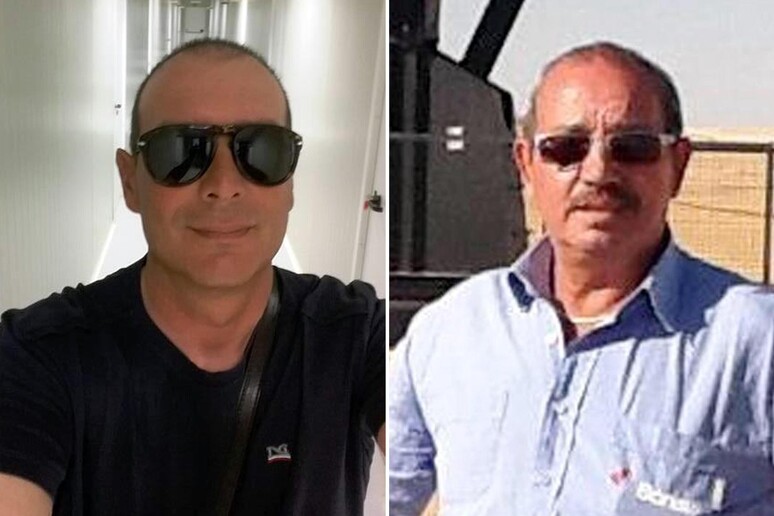Autopsies in Rome of the bodies of
two Italian hostages slain in March 2 in Libya revealed
Salvatore Failla and Fausto Piano died of multiple gunshot
wounds, coroners said Thursday.
Failla was killed by shots to the sternum and the lumbar
region. Coroners found six entry wounds caused by gunfire, none
of them to the head. They said it was impossible to say what
weapon had been used.
Piano died of several bullet wounds to the upper body. This
appears to contradict early reports that the two had been
executed, and supports the theory that they were killed in a
battle with opposing militia while being moved.
Also on Thursday, a lawyer for the Failla family said an
autopsy carried out in Libya before the bodies were returned to
Italy was "a butchery".
"The cutting out of a section of bodily tissue has made
identifying the murder weapon and working out the distance and
trajectory impossible," Francesco Caroleo Grimaldi said. "It was
not an autopsy - it was a butchery".
Early on Thursday, an Air Force plane brought the bodies
of the two Italian oil-sector workers who were killed in Libya
last week after being taken hostage in July, back to Italy.
The remains arrived at Rome's Ciampino airport shortly
after midnight.
On Wednesday Failla's widow said she felt let down by
Italian authorities and was refusing a State funeral.
Failla and Piano were part of a group of four Italian
employees of the Parma-based Bonatti oil construction firm who
were kidnapped on their way to work.
The other two hostages are back in Italy after freeing
themselves. Foreign Minister Paolo Gentiloni told parliament
Wednesday that no ransom was paid for the hostages.
On Thursday, Gentiloni said the government is maintaining
"maximum discretion" on reports Italian officials were coerced
under threat to turn the bodies of Failla and Piano over to
Libya officials for autopsy.
"The judiciary is dealing with the matter," Gentiloni said.
"(This) does not cancel out our sympathies with the families for
the pain they have suffered, and which unfortunately was
accentuated by the frankly incomprehensible manner in which the
return of the remains has been prolonged".
Filippo Calcagno, one of the two survivors, said Thursday
that his captors did not speak Italian. However, he also said
that the group was told to be careful of what they said in
recorded messages because these would be heard by someone who
could understand.
Failla's widow has stated a kidnapper had called her and
spoken in Italian.
Calcagno said he also had the impression that negotiations
were taking place for the hostages' release before two were
killed last week.
He said earlier this week that "I don't know if (our
captors) were men from ISIS. It'll be up to them to say if they
were ISIS or criminals. For me they are criminals because what
they do is awful".
Calcagno told journalists that he and his three co-workers
were held by "a family of criminals - there were women and a
child" and that they "suffered hunger, thirst, beatings,
punches, blows with rifle butts and we had to do our business
inside a plastic thing".
ALL RIGHTS RESERVED © Copyright ANSA











